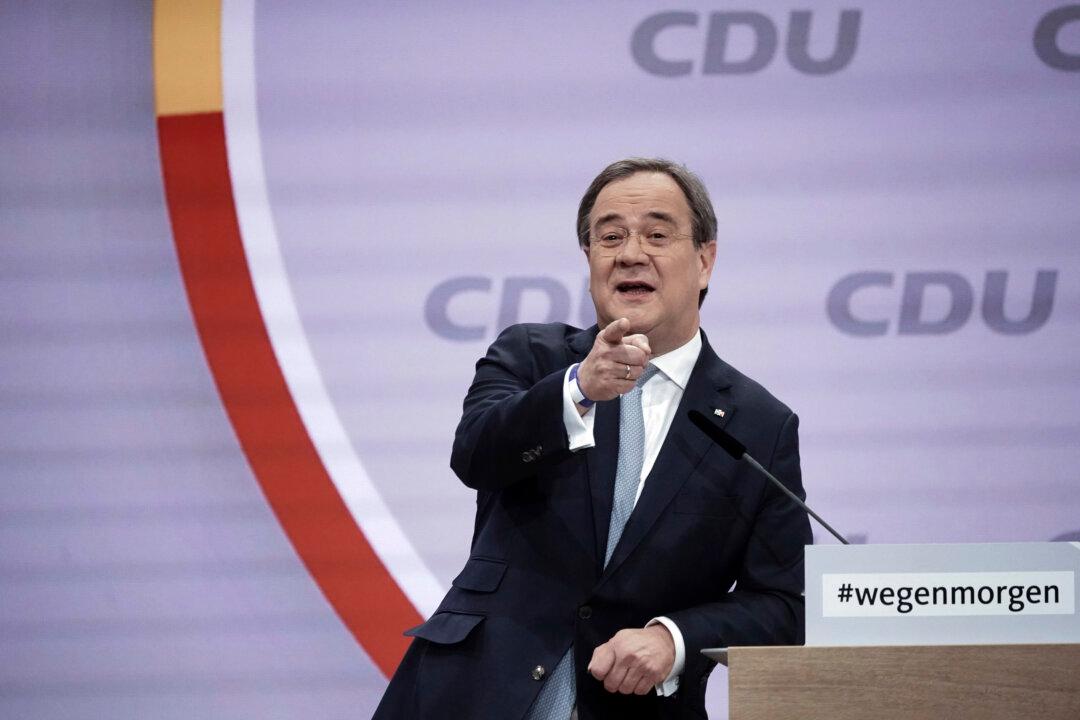BERLIN—Chancellor Angela Merkel’s party on Saturday chose Armin Laschet, the governor of Germany’s most populous state, as its new leader—sending a signal of continuity months before an election in which voters will decide who becomes the new chancellor.
Laschet defeated Friedrich Merz, a conservative and one-time Merkel rival, at an online convention of the Christian Democratic Union. Laschet won 521 votes to Merz’s 466. A third candidate, prominent lawmaker Norbert Roettgen, was eliminated in a first round of voting.





